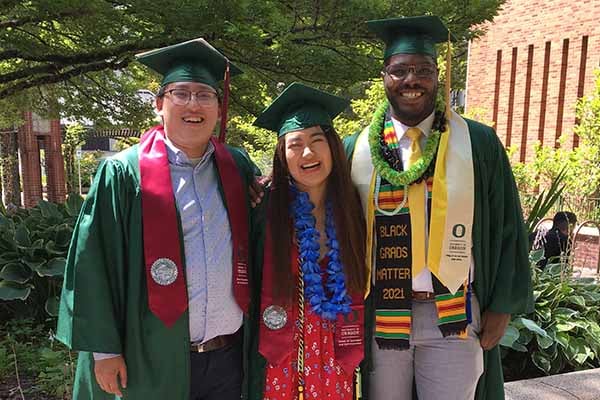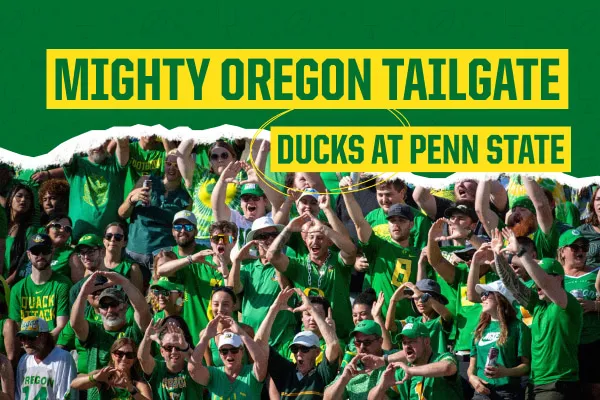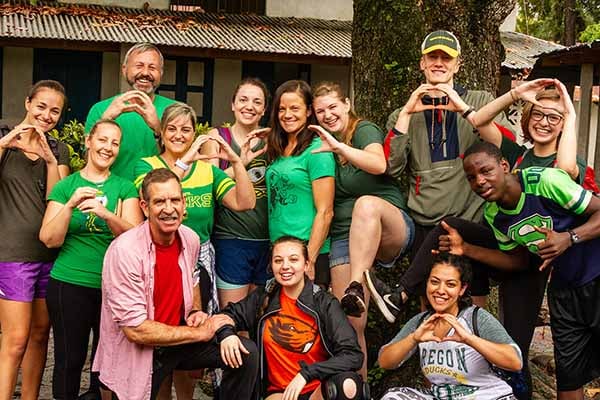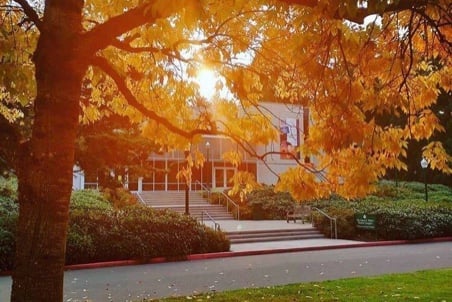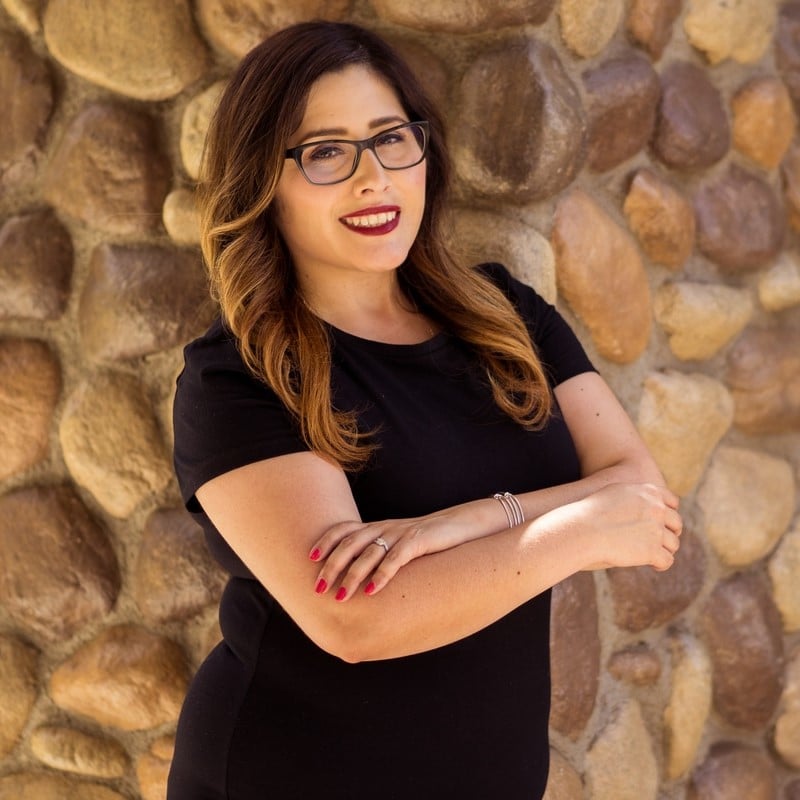
Claudia Amezcua, MA '22 (strategic communications)
Job Title: Digital Content Producer at KGTV ABC 10 News
Part of the Daily Emerald "Ducks Take Flight" feature
Written by Lizzy Lee, UO student reporter
Claudia Amezcua will receive her master’s degree in strategic communications in 2022. She is a bilingual, award-winning multimedia journalist. Currently, she resides in San Diego, working as a digital content producer at ABC 10 News.
What inspired you to seek a career in broadcast journalism and communications? I’ve always loved storytelling. From a very young age, I enjoyed spending time writing about whatever I was interested in at the moment. In middle school, I even created a blog. But it wasn’t until college that I learned about journalism and decided to pursue it as a career. What I love about journalism is that I can produce my own stories, highlight underrepresented communities—like my own—and hopefully invoke change.
What does being a digital content producer entail? In my role, I do a bit of everything. Most of my job involves editing broadcast scripts into web form, running live streams, managing and creating content for social media. Other duties involve writing and shooting enterprise stories, optimizing articles, and newsgathering. The fun part of my job is that every day is different, and I get to do a little bit of everything. No day looks like the other, and I get more freedom to get creative with the way I tell stories and the type of stories I tell.
Because working in the news requires you to move around, every new place has allowed me to meet new people and tell their stories. It's always nice to hear those who read my stories say, 'I didn't think about it that way' Or 'hey, thank you for highlighting our story.'
What are your tips for navigating school and job searching since the pandemic hit?
I think the best way to navigate school and job hunting since the pandemic hit is to stay organized. Block out time for homework and job search-related activities like updating your resume or cover letter. Make a list of companies you want to work for and set up informational interviews via Zoom with recruiters or hiring managers. I also recommend talking to journalists working at those companies who can better answer other questions about the work culture and what the workload is like.
Take advantage of remote internships while you’re in school as they may allow you to work from home and gain experience. If you can do an internship in person, make sure to make the most of your time there by learning as much as you can. Try to get a feel of every position that you’re exposed to, all of them play a role in the coverage audiences see or read each day.
Above all, prioritize your mental health and avoid burning out trying to do everything. Be kind to yourself. The right job will be there when you’re ready.
How important is diversity in a newsroom? How can we ensure journalism is produced for the benefit of all?
Diversity matters because it contributes to accurate, fair, and inclusive coverage of the communities they serve. Journalists from diverse backgrounds bring lived experiences and can connect to people on a deeper level to highlight the issues affecting communities normally not highlighted in mainstream media. They know what to ask and how to frame questions to get to the core of the story. Above all they do it respectfully.
We first must be clear about why we want diversity in our newsrooms and make sure it’s not just about meeting a quota. We must create inclusive environments for diverse journalists, help them continue to develop in their careers and encourage them to speak out and demand accountability for our communities.
How do you feel about social media in general, and its effects on journalism?
Social media helps dispense information or gather information, especially during breaking news. But at the same time, it’s also made doing our jobs a lot harder, especially in the last few years.
Social media has allowed newsrooms to become more innovative with their coverage and access to more people. It helps us understand the issues people feel strongly about and find ways to include them in our reporting. At the same time, because we get instant pushback on topics that people feel weren't covered or how they were covered.
It’s definitely, a blessing and a curse.
What are your tips for effective networking, and how can journalism students build a professional network early on?
Join the student chapters of professional journalism associations like SPJ, NAHJ, NABJ, AAJA, ONA and NLGJA, to name a few. Go to journalism conventions and put yourself out there as those are places where you can find an internship, job, or at least be a worm in somebody's ear. Reach out to alumni on LinkedIn and shoot them an email. If they're local, ask to meet up for coffee and have a chat about their journey into journalism.
I recommend getting involved in school through on-campus opportunities like DuckTV and take advantage of workshops to meet other students or professionals in journalism.
I also make sure to emphasize the importance of creating a website or a digital portfolio that showcases their best work samples. If you have videos of your work and put those suckers on YouTube, link them to your digital portfolio. Above all, be nice to people because you never know if that person may know someone you're interested in meeting or working for. In journalism, it's really who you know, and it's a small world.



